Local Farms are Highlights of High Country Armed to Farm
By Margo Hale, NCAT Armed to Farm Director
NCAT’s Armed to Farm program recently celebrated its thirtieth week-long training with an event at Appalachian State University in Boone, North Carolina. We spent July 25-29 in the beautiful High Country of North Carolina and got to visit operations that reflect the distinctive agriculture of the region.
Thirty veterans/farm partners from North Carolina, Tennessee, Virginia, and South Carolina attended the training. NCAT Sustainable Agriculture Specialist Mike Lewis joined me to help. The local Extension agent, Eddy Labus, was an invaluable partner. He arranged the farm visits and many of the speakers, and helped all week. Our other amazing program partners Dr. Anne Fanatico and Dr. Lynn Gibbard hosted the Armed to Farm training as part of their veterans project, Frontline to Farm.
We visited several amazing local farms during the week:
- Armed to Farm alum Cory Bryk and his family operate New Life Farm. They produce specialty crops including fruit, vegetables, herbs, and flowers. They also raise pastured chickens and turkeys and forested pigs. During our visit, we discussed tomato production, since that is Cory’s most plentiful and profitable crop. Cory demonstrated pruning and trellising tomatoes and participants got to practice.
- Springhouse Farm is a diversified vegetable and flower farm that hosts interns and welcomes customers to the farm for “pick your own bouquet” sales.
- Against the Grain Farm is a diversified vegetable and livestock farm. We learned about their compost and soil health practices and their Community Supported Agriculture (CSA).
- We took an evening trip to Up the Creek Farm, where farmer “Ginseng Joe” grows ginseng, goldenseal, and black cohosh. We talked about the historic and cultural importance these forest plants have to Appalachia. It was pouring rain, but the group trekked through the wooded hills to see Joe’s plantings. He even let folks harvest ginseng roots.
- We visited two dairies! This was a treat because small-scale dairies aren’t common in most areas of the country. Our first stop, Cheek’s Farmstead Creamery, is a multi-generational dairy cattle farm that bottles their own milk and makes ice cream. Heritage Homestead is a goat dairy that produces various cheeses and fudge, which we were lucky to sample. We also enjoyed Heritage Homestead’s goat milk caramel sauce on Cheek’s Farmstead Creamery ice cream.
- We saw the diversified production of fruit, vegetables, and flowers at Appalachian State University’s Sustainable Development Farm. Dr. Fanatico shared about the farm’s pastured poultry research and livestock production. We toured the greenhouses and learned about the farm’s various alternative energy systems.
- Our Thursday afternoon farm visit took us to Watauga Butchery and Shipley Farms. The Shipleys are a multigenerational beef operation and have been on the same farm for 150 years. They opened the Watauga Butchery at the beginning of the pandemic to meet their processing needs. During our butchery tour, the butcher pulled out a beef carcass and explained the various cuts. For those who are selling meat or are interested in doing so, it was helpful to understand what a butcher is looking at, and what cuts and amounts they can get from a carcass. In addition, the Shipleys’ on-staff chef talked about working with restaurants and showed how a chef might use the beef cuts.
As always during Armed to Farm, we had classroom sessions each morning to cover topics such as whole-farm planning, recordkeeping, working with a lender, farm legal issues, and more. We had guest speakers from the Farm Service Agency, Natural Resources Conservation Service, and Rural Development. Dr. Gibbard spoke about communications and marketing for farms. We also heard from Dr. Fanatico about how Appalachian State’s Frontline to Farm program works with veterans.
It was a great week in Boone with a fantastic group of farmer-veterans. Even though we’ve now hosted 30 Armed to Farm trainings, we still learn from each new, unique group of participants, partners, and farmers. Each training is a privilege and a pleasure.

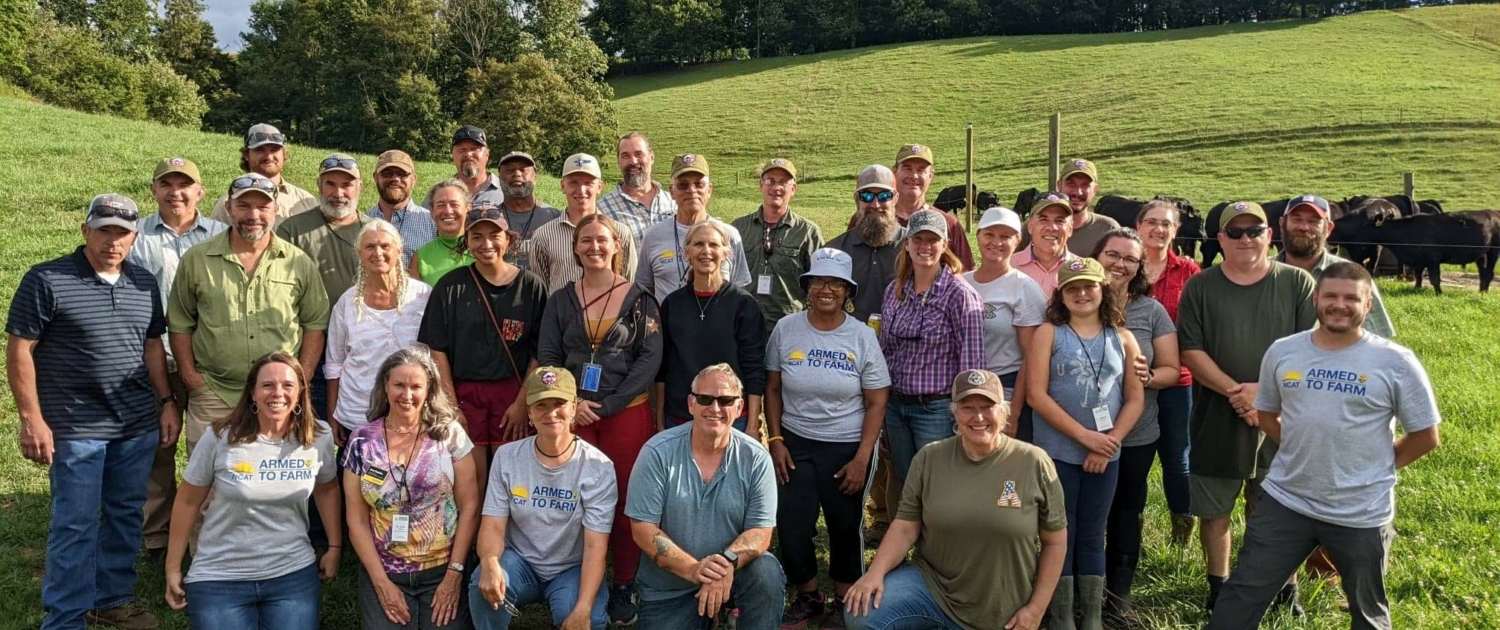
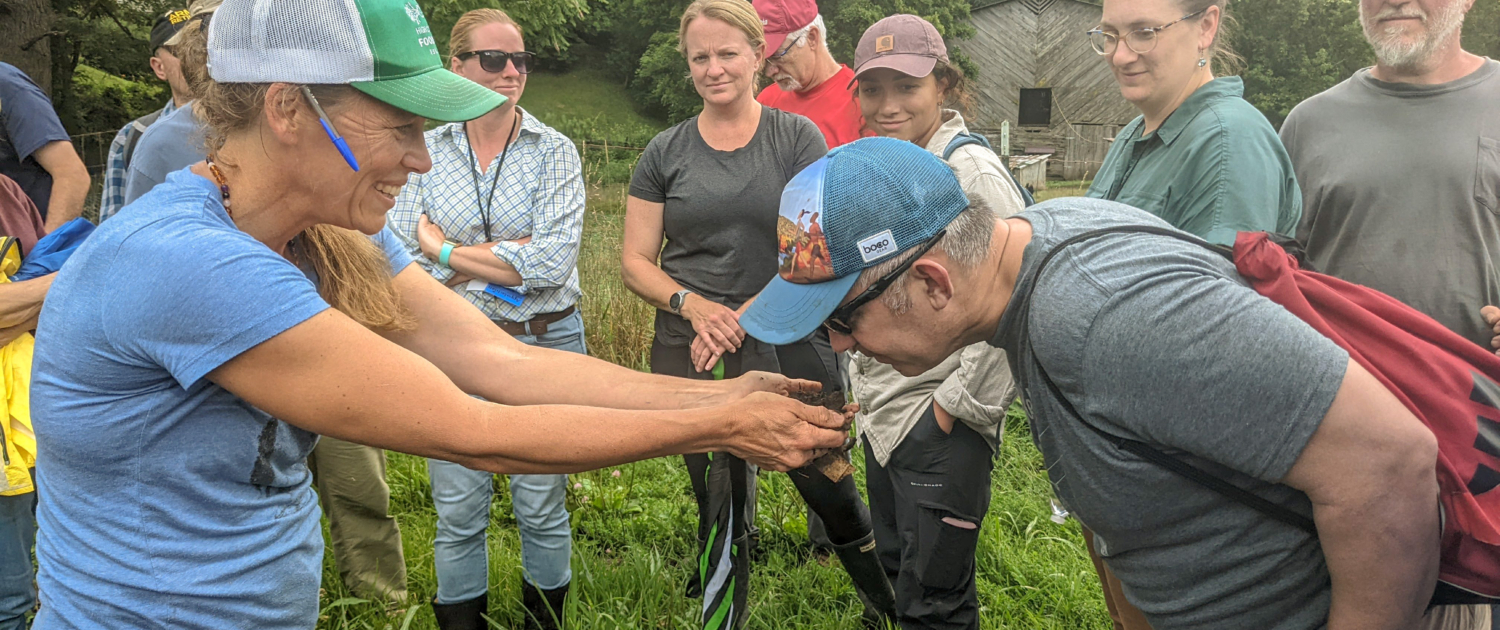
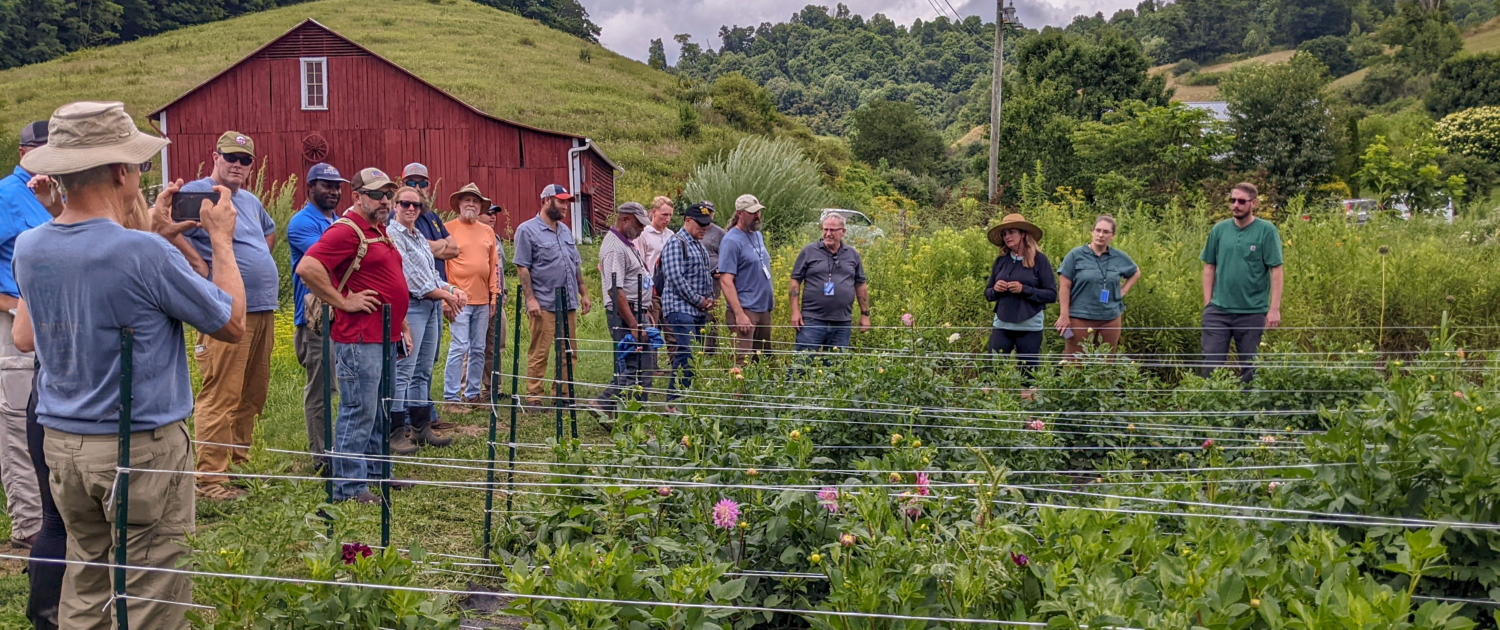
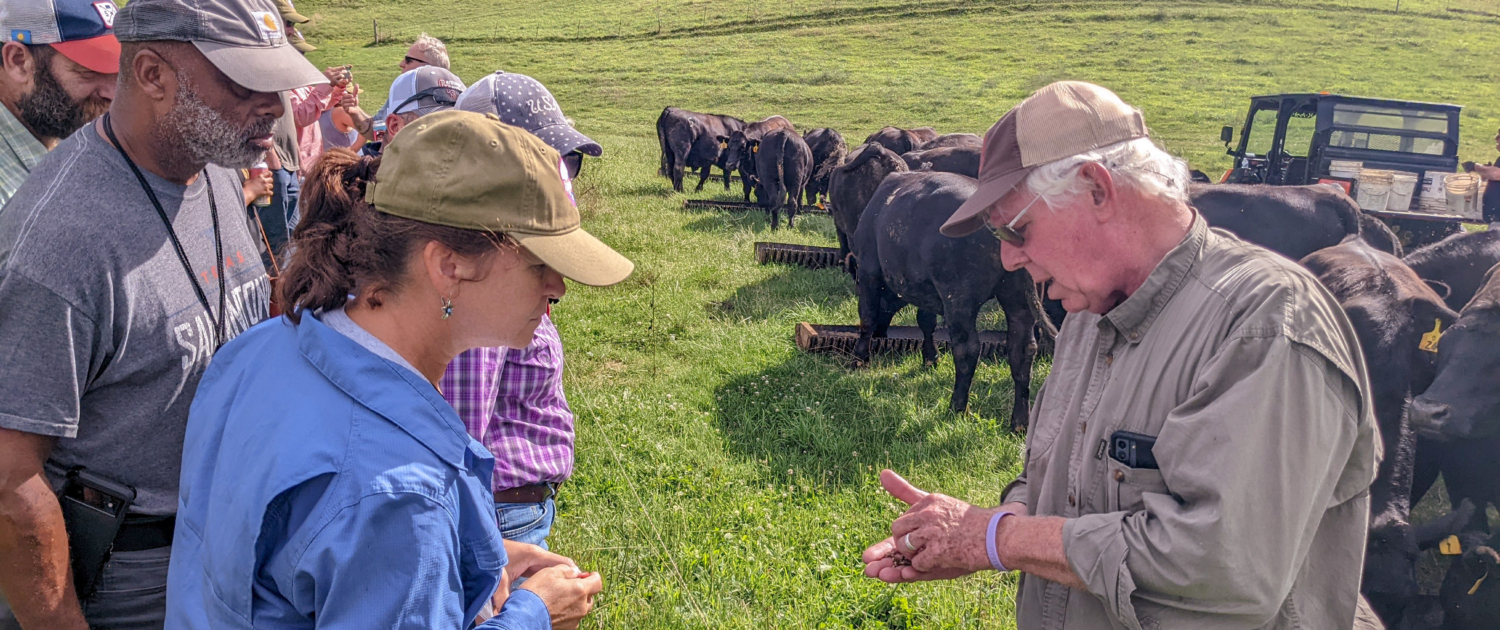
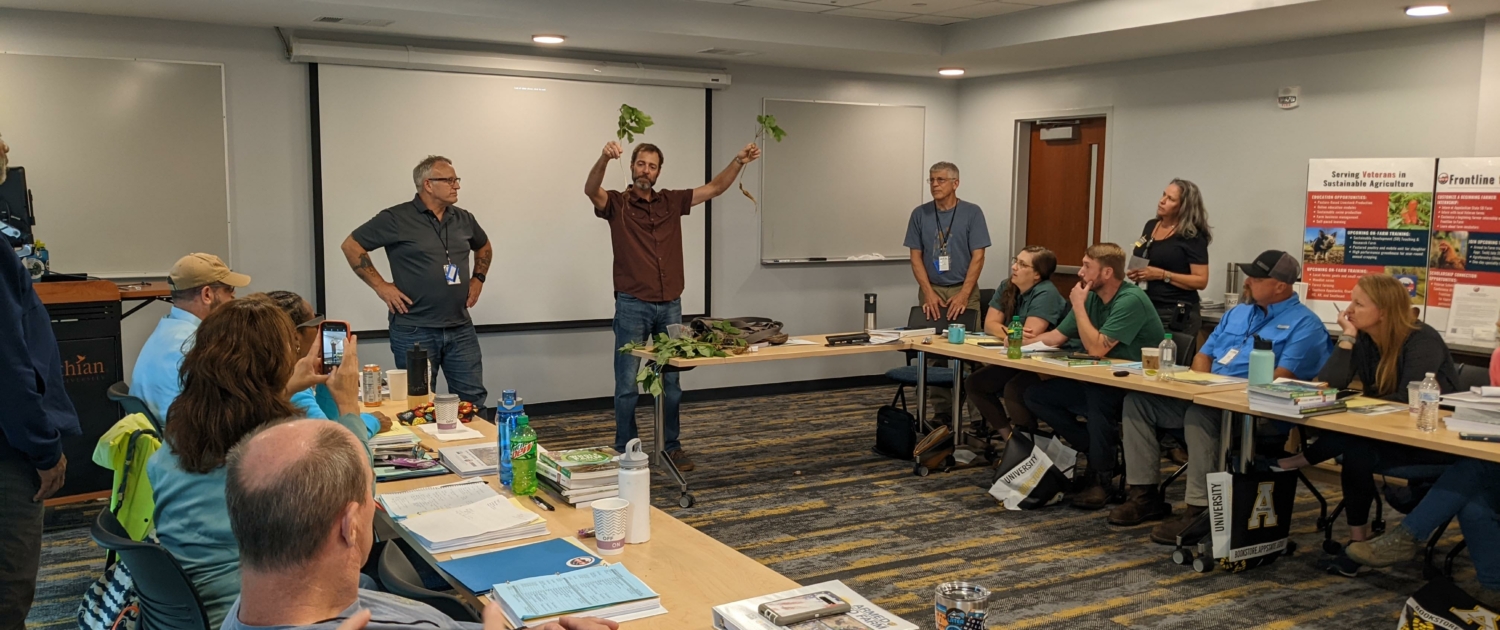
 Canva Pro
Canva Pro